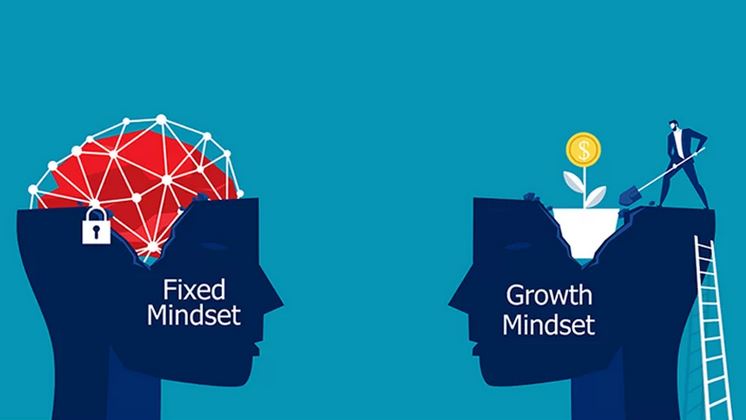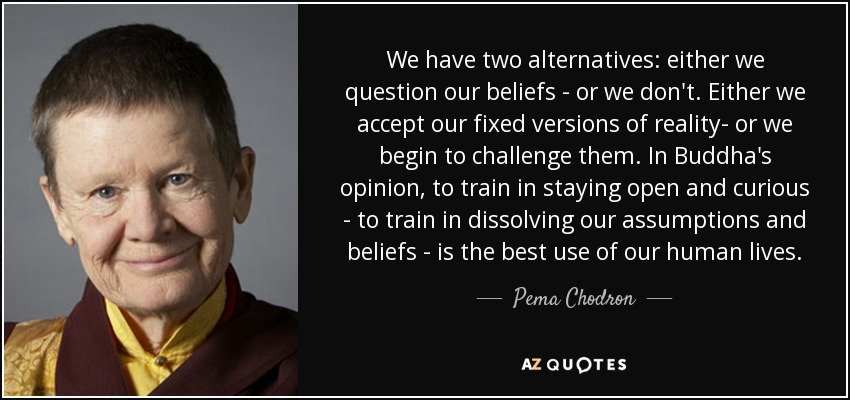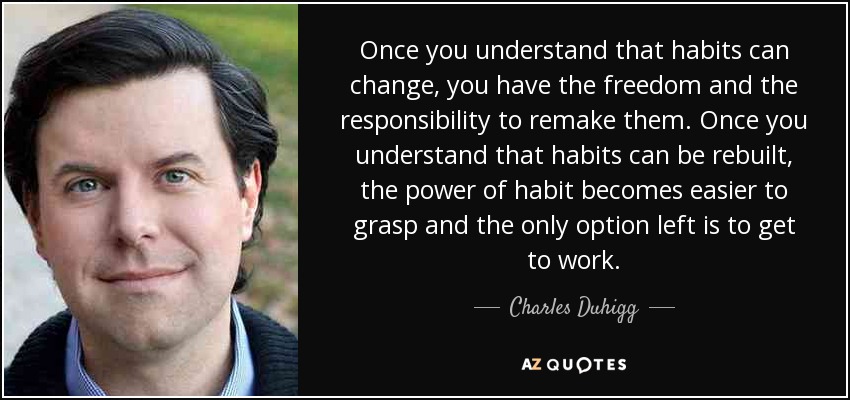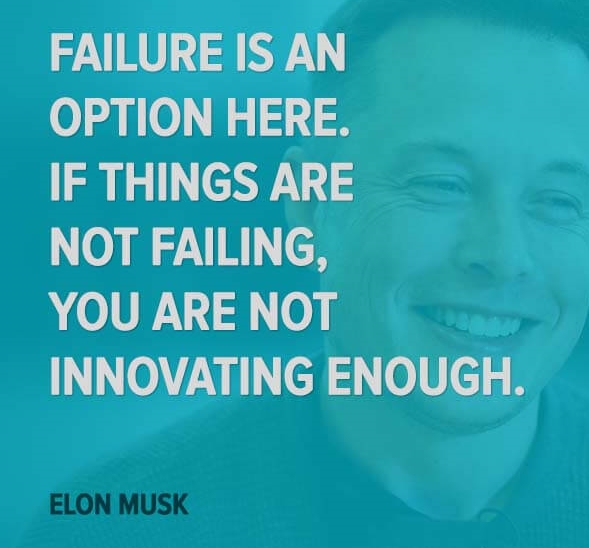How To Have A Growth Mindset
5 Tips For Developing A Growth Mindset
How To Be There When Preparation Meets Opportunity
What Is A Growth Mindset?
What do we mean by a growth mindset?
The phrase was coined by psychologist Carol Dwek who has undertaken extensive research to show that we approach life through one of two core sets of beliefs: a fixed mindset or a growth mindset.
The fixed mindset holds the core belief that your personality and intelligence is a fixed, deep-seated and unchangeable trait - you are what you are and cope with life as best you can within the limitations of that trait.
"If you have only a certain amount of intelligence, a certain personality, and a certain moral character— well, then you’d better prove that you have a healthy dose of them. It simply wouldn’t do to look or feel deficient in these most basic characteristics.
I’ve seen so many people with this one consuming goal of proving
themselves— in the classroom, in their careers, and in their
relationships. Every situation calls for a confirmation of their
intelligence, personality, or character. Every situation is evaluated:
Will I succeed or fail? Will I look smart or dumb? Will I be accepted or
rejected? Will I feel like a winner or a loser?" [Dwek]
The growth mindset holds the core belief that your intelligence and personality is something you can develop and that you can expand and grow.
This growth mindset is based on the belief that your basic qualities are things you can cultivate through your efforts.
The passion for stretching yourself and sticking to it, even (or especially) when it’s not going well, is the hallmark of the growth mindset.
This is the mindset that allows people to thrive during some of the most challenging times in their lives." [Dweck]
What Determines Your Mindset?
In my experience there are 2 key determinants of your mindset:
[1] Your hidden beliefs that were installed by your primary care-givers when you were a child.
Many parents and care-givers praise [or denigrate] a child for her traits and attributes.
"You're so clever!"
"You're so good at....."
A parental focus on what you are leads to a fixed mindset
The key point is that the focus of praise is on what you are [or are not].
The effect of this is to create a fixed mindset defining a view of yourself that you will feel compelled to defend over and over again, and that will cause you to avoid challengers where you feel you may fail.
Why?
"Because this is who I am!"
When I was about 7 years old I made my mother a toast rack as a Mother's Day present. I was proud of it and so happy when I presented it to my mother. Unfortunately I made it with balsa wood and of course it broke. My father laughed at me and said that I was no good at practical things.
The mindset that I am not practical, and the shame that accompanied it, stuck with me for 20 years until I got married and we bought our first property. The kitchen needed refurbishing and I determined to do all the work myself.
I remember saying to myself:
"I am not going to go though the rest of my life believing that I can't do practical things because of something that was instilled in me as a child. I will not be defined by that limiting belief..."
I refurbished that kitchen and made a good job of it!
A parental focus on how you do things leads to a growth mindset
Some parents and care-givers praise for process such as the efforts and strategies that were employed.
By focusing on the process rather than the outcome, adults can help kids understand that their efforts, hard work, and dedication can lead to change, learning, and growth both now and in the future.
The effect of this is to create a growth or expansive mindset, a mentality of experimentation and learning, a preparedness to face challenges and persist in the face of failure.
Why?
"Because this is what I do!"
We are brought up to believe that the beliefs that were instilled in us when we were young should be regarded as immutable certainties, and it is these beliefs that form your mindset.
That's fine if your mindset works for you, but what if it doesn't?
What if you come to realise that it inhibits you and limits your growth and development?
Can you entertain the idea that beliefs are there to serve a purpose and can be released when that purpose is served?
Here is how to challenge and change your beliefs.
[2] How you frame things.
Framing is about how you define the sense and meaning of situation.
How you mentally characterize a situation has a profound impact on how you respond to it emotionally.
What determines how you characterize a situation will be largely determined by the self talk, the inner voices
and scripts, that run in the background of your mind and that have a high degree of control over what you think, say and do.
It can be very unsettling to discover, as I did a few years ago, that despite doing lots of work on yourself, and getting involved in personal development and self improvement activities, that there are often still deeply buried beliefs expressed in unconscious self talk that still have a significant influence over your choices.
Follow your resistance
The very best clue that you have some unhelpful and unresourceful
self-talk going on inside your head and outside your conscious awareness
is to look closely at your resistance to things.
Think of something that you want to have, do or be. Why don’t you have it? If you say anything other than honest “I know it’s on the way to me” you probably aren’t clear inside with what you want.
A sobering realisation
In the course of undertaking a goal setting exercise some years ago, I was amazed to discover that I had a quite deep resistance to the idea of achieving financial success easily, and I also had a deep resistance to the idea that anyone actually listens to me.
I have been involved in personal development for many years, so this was a sobering realisation that there were still deep seated areas of resistance in me and that were whispering deeply corrosive and damaging self talk within me.
Change comes from within
This hidden resistance is also known as your immunity to change and it reflects the conditioning that you experienced from your parents and primary care givers that was intended to help build you up and protect you from the negative impacts of personal change such as disappointment and shame.
Think of this as your inbuilt "emotional immune system" trying to protect you.
Here are some simple but powerful techniques and resources to help you change your limiting hidden beliefs.
5 Tips For Developing A Growth Mindset
[1] Change your beliefs & change your attitudes
We have already discussed this point in some depth above. To recap, your beliefs are the hidden software in your head that will determine how you see life, how you interpret your experiences, the choices that you make and the decisions that you take.
Here is: how to challenge and change your beliefs.
[2] Deal with your ego by keeping it busy
There are a number of ego traps that can work against a growth mindset, here are 2 big ones:
- The ego in each of us craves attention and this often manifests with a desire to be in the limelight and a desire for longevity!
- The ego doesn't want to admit weakness or risk failure so it puts up a “perfectionism” roadblock by raising the finishing requirements.
In my experience I have found the best way of dealing with my ego is not to fight it but to keep it busy by:
- Focusing on the process not the goal
- Focusing on the daily routine that will lead to the long term goal
- Focusing on short-term immediate tasks
- Measuring these small steps in the process to provide rapid feedback
In short, keep it busy!
[3] Work with your hard wiring

You are walking around with the same hardware as your Paleolithic ancestors. We have inbuilt tendencies:
- To seek instant gratification and to avoid deferred gratification.
- To look for the simplest and quickest solution which means that our default position is to reason by analogy and to see cause-and-effect where there is none.
- To a wide range of cognitive biases
There are 2 keys to this.
- Be aware of your inbuilt tendencies
- Develop your thinking skills
[4] Change your habits
A growth mindset based on tiny changes to your habits can deliver remarkable results, over time.
- “Success is the product of daily habits - not once-in-a-lifetime transformations.”
- "Success is not a goal to reach or a finish line to cross, it is a system to improve, an endless process to refine."
- “If you want to predict where you’ll end up in life, all you have to do is follow the curve of tiny gains or tiny losses, and see how your daily choices will compound ten or twenty years down the line.” [James Clear]
Success is the product of daily habits - not once-in-a-lifetime transformations.
Learn how to apply atomic habits that when practiced regularly will yield incredible results through the power of compound growth.
[5] Dealing with your relationship with failure
Success is the exception rather than the rule. Life itself is driven by failure.
- The notion that you might fail can really slow you down.
- Just because you have a spectacular failure doesn’t mean the game is over.
- But it’s not the failure itself that’s the problem.
- The problem is your relationship with failure.
A good failure is a powerful learning experience.
Learn and apply why embracing failure is the better option.
Further Reading:
Top 7 Mastery Principles to Building a Business
Next Article:
Lost For Words? Experience Truth
Return from "Growth Mindset" to:
Inner Mastery For Outer Impact or Walking The Talk
LATEST ARTICLES
Manifestation Without Magic: A Practical Model
 Manifestation without magic is not a softer or more intellectual version of popular manifestation culture. It is a different model altogether. Popular manifestation teachings tend to frame reality as…
Manifestation without magic is not a softer or more intellectual version of popular manifestation culture. It is a different model altogether. Popular manifestation teachings tend to frame reality as…Staying Committed When You Can't See Progress - The Psychology of Grit
 Uncertainty Is Not The Absence Of Progress, Only The Absence Of Reassurance. One of the most destabilising experiences in modern life is not failure, but uncertainty and staying committed when you can…
Uncertainty Is Not The Absence Of Progress, Only The Absence Of Reassurance. One of the most destabilising experiences in modern life is not failure, but uncertainty and staying committed when you can…The Battle For Your Mind - How To Win Inner Freedom In A Digital Age Of Distraction
 From External Events to Inner Events. We often think of “events” as things that happen out there: the traffic jam, the rude comment, the delayed email reply. But what truly shapes our experience is wh…
From External Events to Inner Events. We often think of “events” as things that happen out there: the traffic jam, the rude comment, the delayed email reply. But what truly shapes our experience is wh…How to See Your Thoughts Without Becoming the Story
 A Practical Guide to Thought-Awareness. You can spend your life inside the stories of your mind without ever learning how to see your thoughts clearly and objectively. Most of the stuff we tell oursel…
A Practical Guide to Thought-Awareness. You can spend your life inside the stories of your mind without ever learning how to see your thoughts clearly and objectively. Most of the stuff we tell oursel…The Collison Decision Matrix - A Simple Framework for Better Choices
 The Collison Decision Matrix Is A Practical Everyday Thinking Tool. Most of us spend a surprising amount of time worrying about decisions. From small ones such as what to wear, what to eat, what to te…
The Collison Decision Matrix Is A Practical Everyday Thinking Tool. Most of us spend a surprising amount of time worrying about decisions. From small ones such as what to wear, what to eat, what to te…The Power Of Asking The Right Question
 The Power Of Asking The Right Question Lies In The Quest For Insight. To experience the power of asking the right question you must develop the practice of asking questions. The best way to improve th…
The Power Of Asking The Right Question Lies In The Quest For Insight. To experience the power of asking the right question you must develop the practice of asking questions. The best way to improve th…Site Pathways
 Here is a site pathway to help new readers of Zen-Tools navigate the material on this site. Each pathway is based around one of the many key themes covered on this site and contain a 150 word introduc…
Here is a site pathway to help new readers of Zen-Tools navigate the material on this site. Each pathway is based around one of the many key themes covered on this site and contain a 150 word introduc…How To Live With Contradiction - Beyond Thought Let Stillness Speak
 A major impact on so many peoples' lives is the situational contradiction of unfilled realistic expectations. So where does all this leave us? Well here we are, with mental equipment that is more lim…
A major impact on so many peoples' lives is the situational contradiction of unfilled realistic expectations. So where does all this leave us? Well here we are, with mental equipment that is more lim…How To Trust The Process Of Mindfulness - Right Now
 In mindfulness, the process isn’t some distant goal — it's what is happening right now. When we talk about how to trust the process of mindfulness the credibility of the process is heavily dependent…
In mindfulness, the process isn’t some distant goal — it's what is happening right now. When we talk about how to trust the process of mindfulness the credibility of the process is heavily dependent…Inner Mastery For Outer Impact - Mental Clarity For Effective Action
 Insights only matter if they translate into consistent action. In a world crowded with quick fixes and motivational soundbites, the theme “Inner Mastery for Outer Impact” calls us to something more e…
Insights only matter if they translate into consistent action. In a world crowded with quick fixes and motivational soundbites, the theme “Inner Mastery for Outer Impact” calls us to something more e…The Wise Advocate - Helping You Achieve The Very Best Outcome
 The focus of your attention in critical moments of choice either builds or restricts your capacity for achieving the best outcome. When we talk of 'The Wise Advocate' its easy to think of the consigl…
The focus of your attention in critical moments of choice either builds or restricts your capacity for achieving the best outcome. When we talk of 'The Wise Advocate' its easy to think of the consigl…Trust The Process - Beyond The Cliche
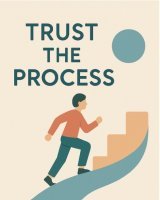 The phrase "trust the process" has become a cliche, the woo-woo mantra of the "self help" industry. Those three little words feel like they ought to mean something useful but hidden behind them are a…
The phrase "trust the process" has become a cliche, the woo-woo mantra of the "self help" industry. Those three little words feel like they ought to mean something useful but hidden behind them are a…
